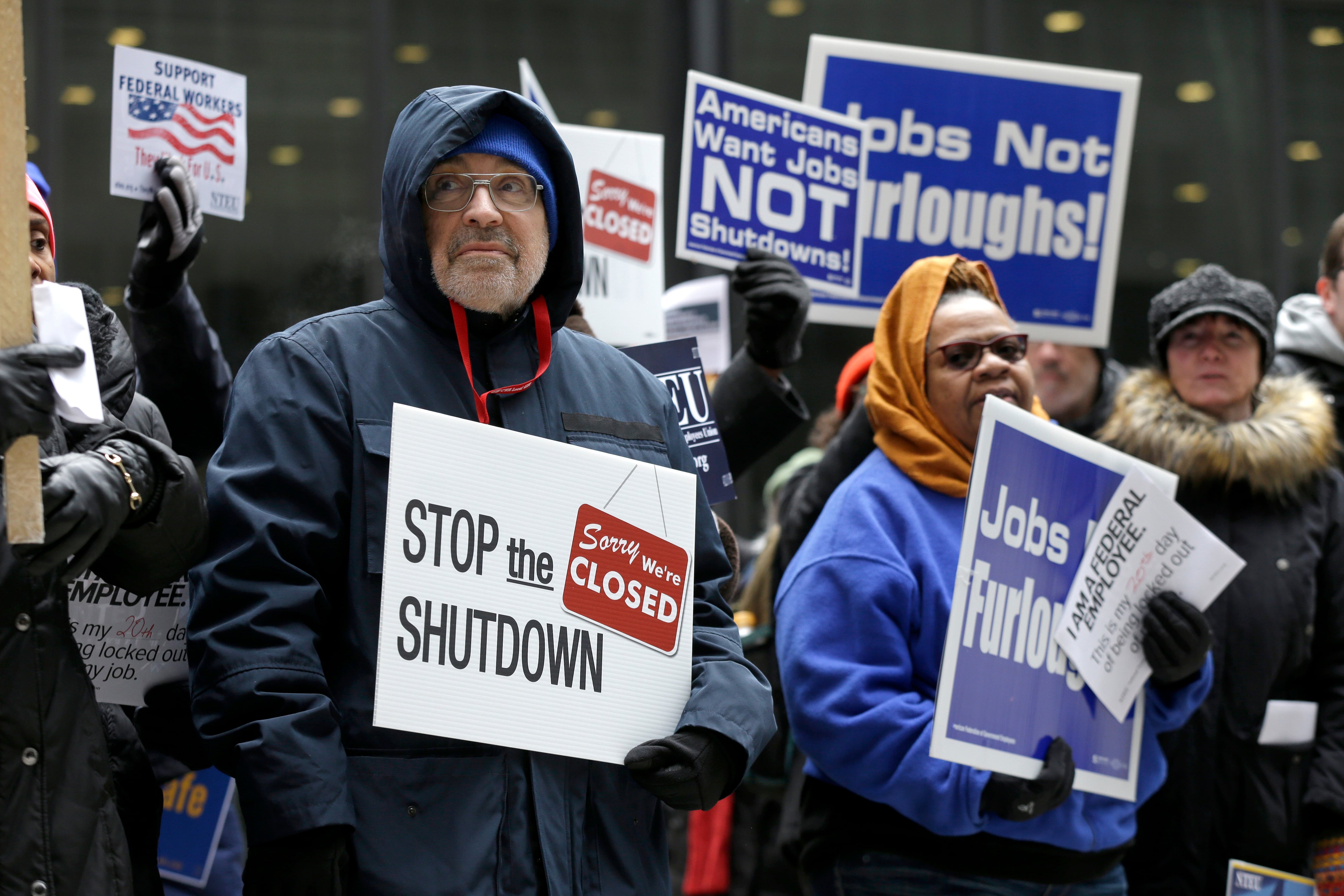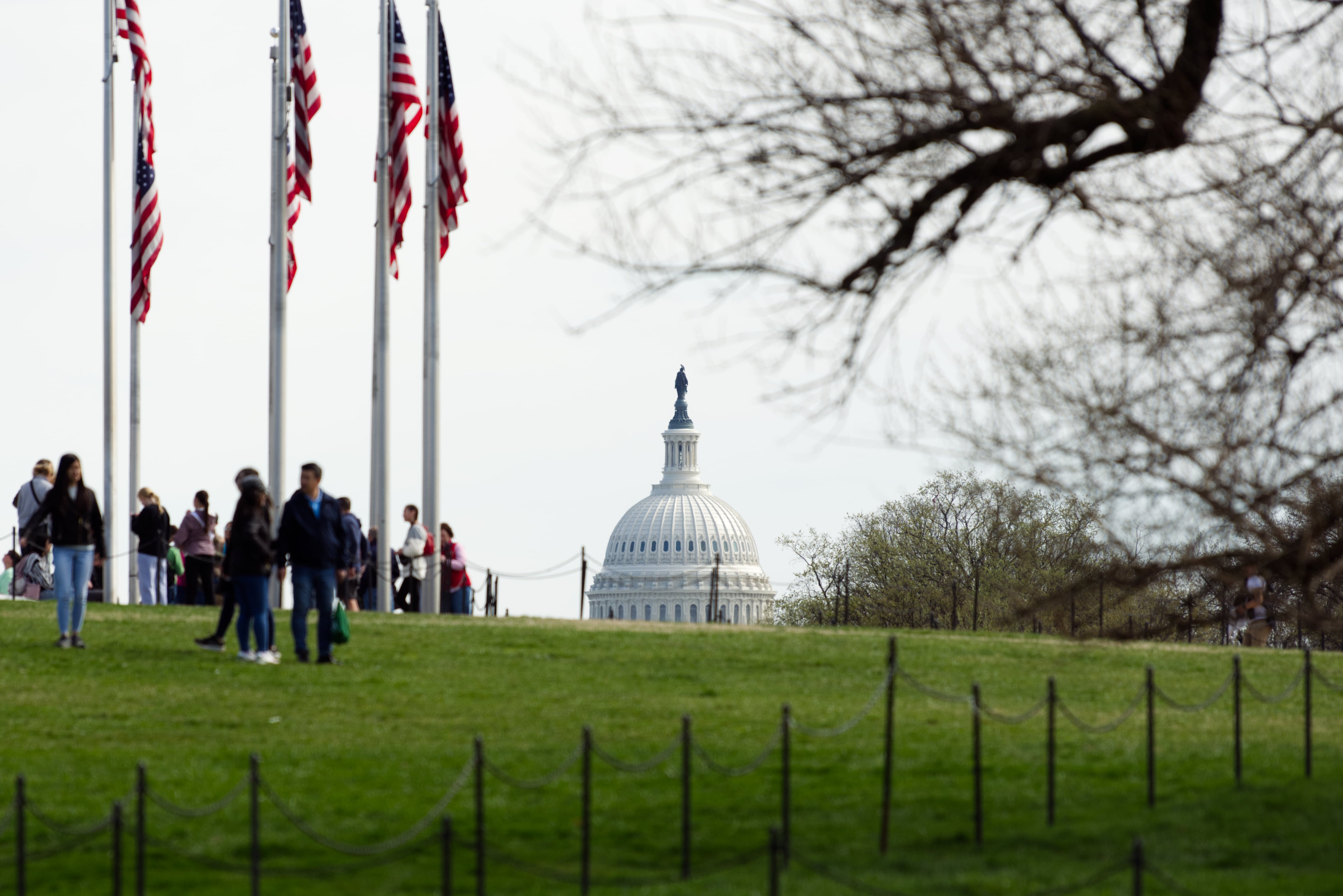If a lapse in federal funding forces a government shutdown, next week will begin with tens of thousands of civilian defense workers being furloughed and non-essential military services closing down, causing widespread problems for troops and their families.
A shutdown would officially start at midnight on Saturday, but many of the effects won’t be felt until the start of the work week on Monday morning. While core military missions will continue unchanged, many travel plans, spouse support services and base maintenance tasks will be pushed aside until the budget issues are resolved.
In 2013, when the last government-wide shutdown occurred, non-critical military services were shuttered for 16 days. Lawmakers are warning this political stalemate could last even longer.
One agency that won’t see as much impact in the short-term is the Department of Veterans Affairs, which receives much of its funding a year in advance of the federal budget cycle. As a result, VA officials are saying that their medical centers will remain open and benefits processing offices will remain working, even as other federal agencies close.
Veterans seeking employment advice or general information on department services, however, will find those offices closed. And every military base, stateside or overseas, will see some changes to normal operations for the duration of the shutdown.
Here’s what to expect next week, barring a surprise political resolution over the weekend.
RELATED

Civilian furloughs
Most Defense Department civilian workers were told this week whether or not they will be required to work during the shutdown. Essential workers will have to report to offices as normal on Monday. Non-essential employees will have to check in Monday morning, close down certain accounts and head home until the shutdown stalemate ends.
In 2013, about 350,000 civilian Defense Department workers were furloughed at the start of that government shutdown, although many were brought back into the office within a week.
Like service members, none of the civilian workers will be paid as long as the shutdown persists. However, because of measures passed by Congress in the wake of past budget fights, employees are guaranteed to receive back pay for their time working once the federal funding issues are settled.
RELATED

Base operations
Specific closures will vary from location to location, but limits on personnel and missions will be seen across installations. Additionally, some entry gates and operations offices will be shuttered.
Troop dining facilities would remain open in accordance with the requirements of the Feed and Forage Act. The status of child care at Defense Department child development centers, meanwhile, remains up in the air. Current guidance states that “child care activities required for readiness” would be exempt from the shutdown.
In the past, individual installations determined whether child development centers would continue to operate during a shutdown. It’s not clear whether a shutdown would affect child care fee subsidy programs for family child care homes, or child care in the civilian community, both of which may be impacted by administrative tasks at the services’ level.
Morale, welfare and recreation activities that are funded solely by non-appropriated funds would not be affected by a shutdown.
Commissary officials said their operations should not be affected unless the shutdown lasts for two months. Department guidance allows the commissary agency to continue to operate all stores until cash reserves are exhausted in its working capital fund.
Beyond that, guidance mandates that overseas commissaries and commissaries that are “determined to be in remote U.S. locations where no other sources of food are reasonably available for military personnel” will remain open.
Military exchanges, which are largely funded by sales revenue, generally will not be affected.
RELATED

Medical care
Medical and dental sites will remain open, but officials have warned that elective procedures may be canceled. Current guidance does not specifically state whether other services provided in these facilities, such as routine appointments, would be immune from the shutdown.
Inpatient care in DoD medical facilities, as well as acute and emergency outpatient care in DoD medical and dental facilities, would continue. Private sector health care under Tricare would also continue. Medical care for wounded warriors, including surgery for recovery of function and appearance, would remain available.
Navy leaders said that all physical evaluation board processes for sailors and Marines will be paused until the shutdown is resolved.
Family moves and services
Permanent change of station moves for military personnel would be limited primarily to those moving to an “excepted activity” — one designated as exempt from the shutdown. Navy officials said there will be “strict limits” on temporary duty travel in the coming weeks.
Department of Defense Education Activity schools’ activities will be exempt from the shutdown. Sporting events and extracurricular activities, however, will be impacted unless such events are fully funded by non-appropriated funds.
Many counseling services appear poised to shut down. However, exceptions will be made for select services, such as emergency counseling and crisis intervention and referral; counseling and other support for victims of sexual assault; and religious, suicide, or substance abuse counseling.
Veterans Affairs
While medical and benefits processing work will continue uninterrupted, programs that don’t receive advanced appropriations would have to end operations during a shutdown.
Veterans Affairs leaders said that includes outreach efforts to veterans, a point of emphasis for the department in recent years. Some VA headquarters staff would be furloughed, although the department has yet to released lists of affected individuals.
Some regional offices would be closed, cutting off veterans’ access to programs involving career counseling and transition assistance. The Veterans Employment and Training Service, which is run by the Department of Labor, would completely cease operations. The GI Bill hotline will also be deactivated.
Cemetery grounds maintenance would be postponed, including placement of headstones and markers, but burials will take place as scheduled.
Of the department’s workforce of more than 456,000 employees, about 15,600 are expected to be furloughed.
Karen has covered military families, quality of life and consumer issues for Military Times for more than 30 years, and is co-author of a chapter on media coverage of military families in the book "A Battle Plan for Supporting Military Families." She previously worked for newspapers in Guam, Norfolk, Jacksonville, Fla., and Athens, Ga.
Leo covers Congress, Veterans Affairs and the White House for Military Times. He has covered Washington, D.C. since 2004, focusing on military personnel and veterans policies. His work has earned numerous honors, including a 2009 Polk award, a 2010 National Headliner Award, the IAVA Leadership in Journalism award and the VFW News Media award.





